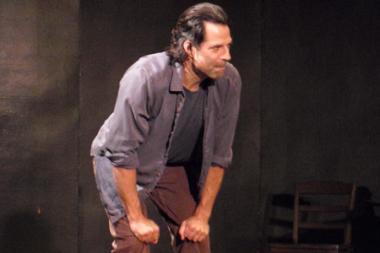When director Julianne Boyd starting doing research for her production of The Crucible, which plays this month at Barrington Stage Company, she went to the source. Arthur Miller’s most-performed play (another production opens next weekend at the New England Youth Theatre in Brattleboro) is set amidst the witchcraft hysteria in colonial Salem, Mass.
Though Miller’s 1953 drama was a response to the anti-Communist witch hunts of the McCarthy era, the playwright was careful to keep it focused on the events of the 1690s and let the metaphor speak for itself. Touring Old Salem, Boyd was struck by a parallel that ties the play even more strongly to America’s mid-century crisis of fear and finger pointing.
Preserved in present-day Salem are some of the dwellings and haunts of the real-life figures depicted in the play, including John Proctor, a farmer who was tried for witchcraft after a group of teenage girls claimed to have seen him consorting with the Devil. Boyd learned that Proctor was not a simple farmer but a rather prosperous landowner and tavern keeper. “In the course of the trials,” she reports, “the powerful clergy and magistrates encouraged the girls to call out people who had means, who were significant in the community, in order to bring them down.”
Similarly, the House Un-American Activities Committee’s most sensational “hearings” were aimed at the high-profile Hollywood movie industry: writers, directors and actors who were active in labor and left-wing movements before and after World War II.
In the fanatical religious mood that stoked Salem’s witchcraft hysteria, Boyd also finds analogies to contemporary America. “There’s a lot of religious intolerance in the country today,” she observes, which feeds the country’s political and social schisms. “There’s the same kind of mob hysteria—if you accuse that person, the person must be guilty.” And of course, guilt by association, betrayal of friends and colleagues, and fear of a devilish enemy were the currency of the witch hunts conducted by HUAC and Senator McCarthy.
A couple of free events this weekend at Barrington Stage frame its production of The Crucible within the frightened atmosphere of the post-war Red Scare. They include Miller scholar Sue Abbotson discussing the play’s genesis and influence, and a panel discussion (of which I’m the moderator) with three children of Hollywood writers whose careers and personal lives were shattered by the blacklist: Kate Lardner, Tony Kahn and Marguerite Thomas.
Oscar winner Ring Lardner, Jr. was jailed for refusing to answer the infamous question “Are you now or have you ever been a member of the Communist Party?” Screenwriter Gordon Kahn was exiled from Hollywood and wrote under a pseudonym for the rest of his life. George H. Thomas, a movie publicist, was blacklisted for being a union activist.
In mid-century America as in colonial Salem, demonizing your enemy was an effective means of exercising political muscle and social control. Sound familiar?
The Crucible: Through Oct.24, 30 Union St., Pittsfield, (413) 236-8888, barringtonstageco.org.
Seeing Red: Children of Blacklisted Writers: Oct. 9, 4 p.m., BSC mainstage; How The Crucible Came to be the Voice of American Conscience: Oct. 10, 1 p.m., BSC Stage 2, 36 Linden St., Pittsfield. Free; reservations recommended.



